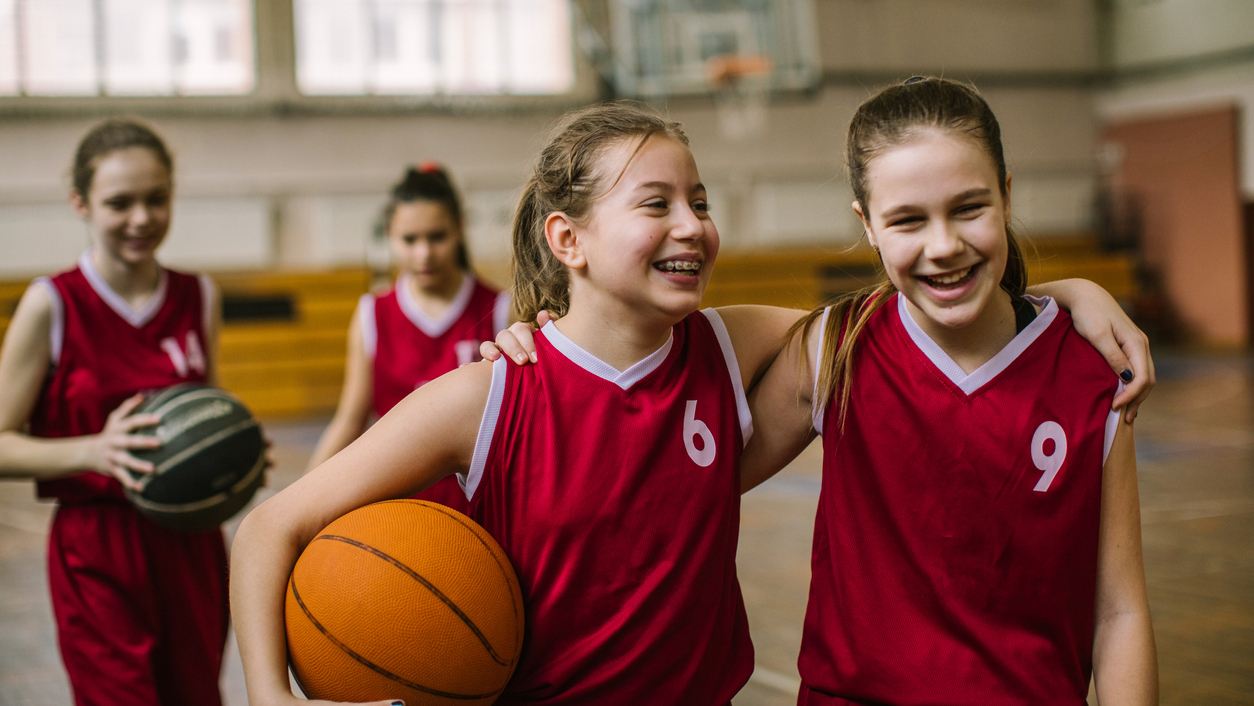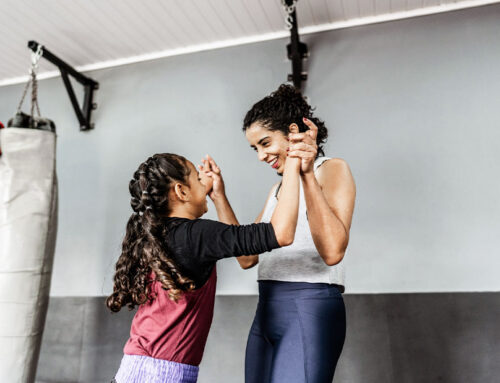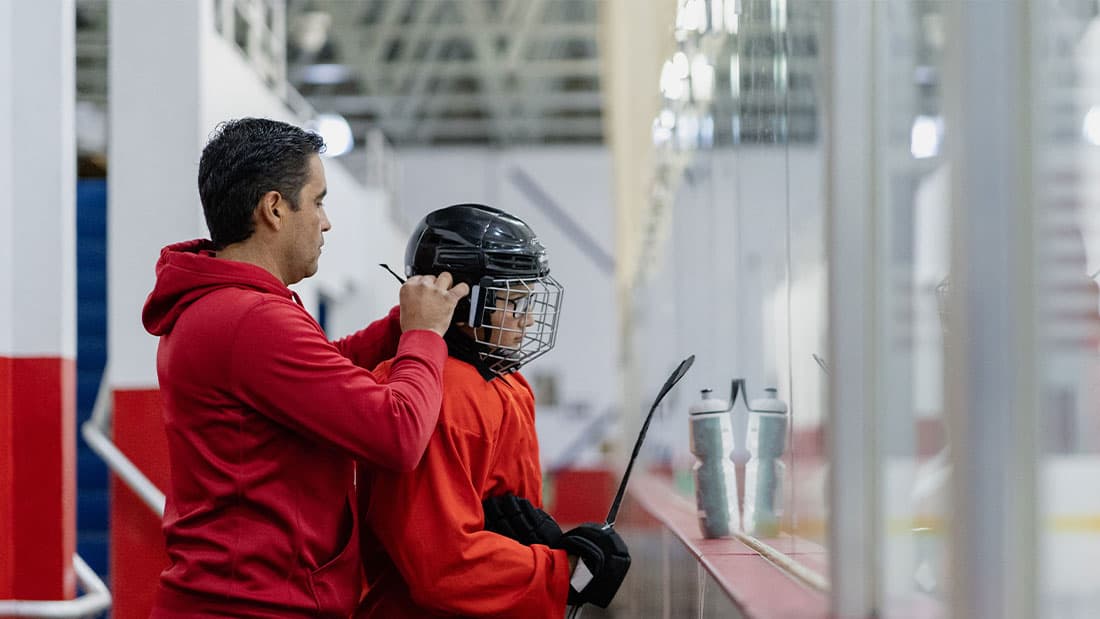Recruiting Enthusiastic Youth Athletes
“Recruiting enthusiastic kids is harder than it’s ever been.”- Geno Auriemma, 11-time champion coach, UCONN Women’s Basketball.
One of the more complex performance capacities is the inspirational capacity, which is why it focuses on this article. Coaches spend a lot of time training other abilities, such as physical, technical, and tactical. This inspirational skill is why certified mental performance consultants (CMPCs) like myself earn our high fees!
Inspiration is defined as the driving force behind attitudes, optimal preparation efforts, and quality execution. It relates to why an athlete plays a particular sport and what makes him/her happiest while playing.
According to one coach, UCONN’s Geno Auriemma, it appears that enthusiastic and passionate players are harder to come by these days. Although coaching and teaching today’s generation of student-athletes (referred to as Gen Z, iGen, even Gen Y-Fi) is replete with its challenges (including the influences of today’s parents), as noted by sociologists and generational researchers. Still, we should not turn a blind eye to their many upsides, including technological natives, self-directed, confident, accepting of diversity, realistic, hopeful, and committed when they are made part of the process. I’m a believer in the impact coaches can have on helping today’s athletes find their inspiration while enhancing its usage on a more consistent basis.
Athletes play sports for hundreds of reasons. Do you know why your players play their chosen game? It may be far different from what you think. Players’ motives for playing are often incongruent with their coaches’ reasons. Some coaches believe their players are all motivated to play to improve their games or progress to the next level. Still, unless players are asked what their motives are and have at least some of their reasons met, they will not be optimally motivated or inspired. Some players play just to be affiliated with a team. Others play for recognition and accolades. Some play to get better, while others play for the camaraderie of teammates. Athletes who do not have their primary motives met are less driven to work toward the coach’s motives, which are usually better play, wins, or championships.
Once coaches are privy to this information via a directed conversation with the right kind of questions, they have an excellent button to “push” when needed. For example, on those rare occasions when a player, who is driven to play at the next level, begins to cruise during a training session, the coach can remind her of her ultimate goals, which should be the “push” she needs to pick up the effort and focus. As it turns out, players will tend to do what the coaches ask of them if their motives are being met. Since most coaches want to do all they can to help their players progress, nothing can help them more than guiding them towards their ultimate goals and aspirations, finding out what those are only takes a conversation. Responses will help determine whether this particular capacity, inspiration, is a barrier, holding the player back by having less-than-realistic goals. Or are they too focused on wins and awards and not enough on their process?
Questions To Ask Your Athletes
- Why do you play your sport?
- What do you love about playing this game?
- What do you love about playing your position?
- What do you plan on accomplishing this season?
- Where do you see yourself playing in 2, 4, or 5 years?
Engaging in this conversation can be an excellent platform for coaches to help players further mold and define their ambitions while also showing a genuine interest and commitment in them as people and not just as players.
Not having one’s primary motives met is one of many inspirational barriers. Other examples of inspirational obstacles include a lack of commitment towards team rules and goals, not adhering to the practice/game plan (working from their own agenda), a lack of purpose, and a decrease in satisfaction and enjoyment in their playing experience. At the crux of these barriers are the players’ behaviors-actions not being aligned with their primary motives/inspirational capacity. Most of the time, players need reinforcement feedback to realize this.
To gain even more understanding of a player’s inspirational capacity, some of my coaching clients will have their players complete this competitive inspiration survey to access primary motives, ambitions, and individual playing processes. Getting it in writing usually helps the players “go deeper” in their responses as they are given time to think about the questions and respond to them.
Competitive Inspiration Survey
- What do you seek to accomplish here?
- What do you love about competing?
- What are you getting out of the experience?
- What makes you the happiest while playing?
- What impedes you from enjoying playing and training at times?
- What impact (on/off the field, teammate, leadership, energy) do you have on this team?
- Is there a disconnect between your beliefs (ex: “I love this game”) and actions (ex: “why then do you go through the motions in training?)
- Is there a lack of commitment to doing all you can for this team?
- Is there a lack of honest effort daily?
- Is there a lack of purpose and passion daily?
- What does it mean to you to “play in the present?”
- What specific feedback helps you the most during training/playing?
- What specific feedback hinders you the most during training/playing?
- How important is winning to you?
- How important is improving to you?
Portions of this article are adapted from Dr. V’s 2nd edition of Mental Toughness Training for Football (Coaches Choice Publishing, 2019) and from his writings that have appeared in the United Soccer Coaches Association’s Soccer Journal.
Read More
- How To Avoid Coach Burnout
- How Kids Can Tell If Their Coach Cares
- How to Develop a Successful Mindset for a Youth Athlete
Resources
https://www.cnn.com/2017/03/22/health/uconn-basketball-auriemma-video-youth-sports-parenting/index.html Los Angeles Times, October 31, 2003.
Thrash, T. M. and Elliot, A. J., Inspiration as a Psychological Construct, Journal of Personality and Social Psychology, 2003, 84, 871-889.
Thrash, T. M. and Elliot, A. J., Inspiration: Core Characteristics, Component Processes, Antecedents, and Function, Journal of Personality and Social Psychology, 2004, 87, 957-973.
RECOMMENDED FOR YOU
MOST POPULAR
Recruiting Enthusiastic Youth Athletes
“Recruiting enthusiastic kids is harder than it’s ever been.”- Geno Auriemma, 11-time champion coach, UCONN Women’s Basketball.
One of the more complex performance capacities is the inspirational capacity, which is why it focuses on this article. Coaches spend a lot of time training other abilities, such as physical, technical, and tactical. This inspirational skill is why certified mental performance consultants (CMPCs) like myself earn our high fees!
Inspiration is defined as the driving force behind attitudes, optimal preparation efforts, and quality execution. It relates to why an athlete plays a particular sport and what makes him/her happiest while playing.
According to one coach, UCONN’s Geno Auriemma, it appears that enthusiastic and passionate players are harder to come by these days. Although coaching and teaching today’s generation of student-athletes (referred to as Gen Z, iGen, even Gen Y-Fi) is replete with its challenges (including the influences of today’s parents), as noted by sociologists and generational researchers. Still, we should not turn a blind eye to their many upsides, including technological natives, self-directed, confident, accepting of diversity, realistic, hopeful, and committed when they are made part of the process. I’m a believer in the impact coaches can have on helping today’s athletes find their inspiration while enhancing its usage on a more consistent basis.
Athletes play sports for hundreds of reasons. Do you know why your players play their chosen game? It may be far different from what you think. Players’ motives for playing are often incongruent with their coaches’ reasons. Some coaches believe their players are all motivated to play to improve their games or progress to the next level. Still, unless players are asked what their motives are and have at least some of their reasons met, they will not be optimally motivated or inspired. Some players play just to be affiliated with a team. Others play for recognition and accolades. Some play to get better, while others play for the camaraderie of teammates. Athletes who do not have their primary motives met are less driven to work toward the coach’s motives, which are usually better play, wins, or championships.
Once coaches are privy to this information via a directed conversation with the right kind of questions, they have an excellent button to “push” when needed. For example, on those rare occasions when a player, who is driven to play at the next level, begins to cruise during a training session, the coach can remind her of her ultimate goals, which should be the “push” she needs to pick up the effort and focus. As it turns out, players will tend to do what the coaches ask of them if their motives are being met. Since most coaches want to do all they can to help their players progress, nothing can help them more than guiding them towards their ultimate goals and aspirations, finding out what those are only takes a conversation. Responses will help determine whether this particular capacity, inspiration, is a barrier, holding the player back by having less-than-realistic goals. Or are they too focused on wins and awards and not enough on their process?
Questions To Ask Your Athletes
- Why do you play your sport?
- What do you love about playing this game?
- What do you love about playing your position?
- What do you plan on accomplishing this season?
- Where do you see yourself playing in 2, 4, or 5 years?
Engaging in this conversation can be an excellent platform for coaches to help players further mold and define their ambitions while also showing a genuine interest and commitment in them as people and not just as players.
Not having one’s primary motives met is one of many inspirational barriers. Other examples of inspirational obstacles include a lack of commitment towards team rules and goals, not adhering to the practice/game plan (working from their own agenda), a lack of purpose, and a decrease in satisfaction and enjoyment in their playing experience. At the crux of these barriers are the players’ behaviors-actions not being aligned with their primary motives/inspirational capacity. Most of the time, players need reinforcement feedback to realize this.
To gain even more understanding of a player’s inspirational capacity, some of my coaching clients will have their players complete this competitive inspiration survey to access primary motives, ambitions, and individual playing processes. Getting it in writing usually helps the players “go deeper” in their responses as they are given time to think about the questions and respond to them.
Competitive Inspiration Survey
- What do you seek to accomplish here?
- What do you love about competing?
- What are you getting out of the experience?
- What makes you the happiest while playing?
- What impedes you from enjoying playing and training at times?
- What impact (on/off the field, teammate, leadership, energy) do you have on this team?
- Is there a disconnect between your beliefs (ex: “I love this game”) and actions (ex: “why then do you go through the motions in training?)
- Is there a lack of commitment to doing all you can for this team?
- Is there a lack of honest effort daily?
- Is there a lack of purpose and passion daily?
- What does it mean to you to “play in the present?”
- What specific feedback helps you the most during training/playing?
- What specific feedback hinders you the most during training/playing?
- How important is winning to you?
- How important is improving to you?
Portions of this article are adapted from Dr. V’s 2nd edition of Mental Toughness Training for Football (Coaches Choice Publishing, 2019) and from his writings that have appeared in the United Soccer Coaches Association’s Soccer Journal.
Read More
- How To Avoid Coach Burnout
- How Kids Can Tell If Their Coach Cares
- How to Develop a Successful Mindset for a Youth Athlete
Resources
https://www.cnn.com/2017/03/22/health/uconn-basketball-auriemma-video-youth-sports-parenting/index.html Los Angeles Times, October 31, 2003.
Thrash, T. M. and Elliot, A. J., Inspiration as a Psychological Construct, Journal of Personality and Social Psychology, 2003, 84, 871-889.
Thrash, T. M. and Elliot, A. J., Inspiration: Core Characteristics, Component Processes, Antecedents, and Function, Journal of Personality and Social Psychology, 2004, 87, 957-973.











